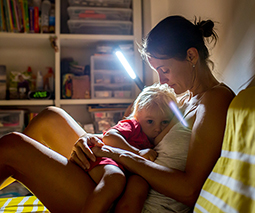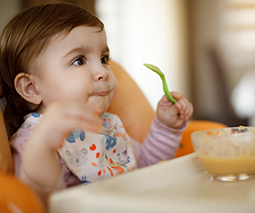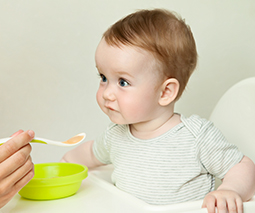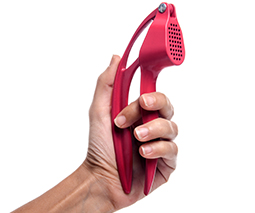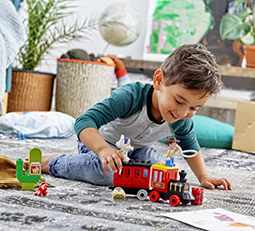We’ve all heard of postnatal depression but what about post-weaning depression?

We’ve all heard of postnatal depression, but how many of us are familiar with post-weaning depression?
A story on Selfish Mother features one woman talking about the depression she experienced after finishing breastfeeding her baby. After successfully breastfeeding for a year, having survived the cracked nipples, a bout of thrush and her son’s biting habits, Melbourne mum Susan Horn, says she was looking forward to the freedom that finishing breastfeeding would provide.
Weaning started off well
At first, it all went well, says Susan. Her son didn’t mind that she no longer offered the feed each evening and he continued to sleep well overnight. “I didn’t even have any discomfort,” Susan says. “It was a textbook break from breastfeeding.”
But two months after she finished breastfeeding, Susan picked up a cold that wouldn’t go away and she felt herself sliding into a deep depression that was unlike any previous spells of depression she’d had before. “I’ve had spells of postnatal depression in the past year, but this was something else,” she says. “It was darker, heavier, and it was all-encompassing. I was beginning to think I was losing it.”
Read more about stopping breastfeeding:
- 7 things that happen when you STOP breastfeeding
- “My body is mine again” I quit breastfeeding for selfish reasons
- “Everybody is different”: Serena Williams cried when she stopped breastfeeding
No idea the depression was linked to weaning
Susan kept finding herself unwell, with illness after illness, which kept her feeling lethargic and unable to exercise – which of course made the depression even worse. Through all of this, Susan still made no connection between the depression and her illnesses to her ceasing breastfeeding, and it wasn’t until a friend went to her doctor for a similar pattern of ill health that she finally figured out what was going on.
“Her doctor told her that her illness was likely due to the fact that she had stopped breastfeeding a month ago. It was a lightbulb moment for both of us,” says Susan. “You see, when we stop feeding our babies, it’s not just the milk that dries up. It’s also the regular bursts of ‘happy hormones’ that we got each time we fed them.”
The huge shift that goes on when we women stop breastfeeding can send our moods and immune system haywire, explains Susan. “Add to that the return of your menstrual cycle, and you draw a card that leads straight to depression without passing go.”
Knowing it was normal helped
Once Susan understood what was going on inside her body, she instantly started feeling better and was able to start some activities and habits that helped ward off the depression. “I’ve started exercising again, which releases my ‘happy hormones’ and makes a huge difference to my mood. I’ve swapped comfort foods for healthier options, so my immune system is starting to fight back,” says Susan. “But most of all, I’ve realised that I’m normal. Post-weaning depression is common, and for me, knowing that is the biggest help of all.”
If you’ve recently finished breastfeeding or plan to soon, keep in mind the adjustment your body goes through as you leave this part of your life behind. Knowing that post-weaning depression is normal and common can help you deal with any symptoms of depression and illnesses that come up in the weeks that follow.
Here are some tips for coping with weaning:
- Get regular exercise – keep yourself moving as exercise release hormones that give you a ‘natural high’
- Sleep well – don’t stay up later than you need to and make sure you go to bed as relaxed as possible each night. Keeping regular hours of sleep will help regulate your hormones – and will support your immune system too.
- Watch what you eat and drink – too much caffeine and sugary foods can interfere with your hormones and aren’t great for energy levels. Do your best to eat well and keep yourself hydrated.
- Do fun things – fill your time with things that make you feel good, like visiting friends and family or buying yourself something nice. Without breastfeeding, you can even consider booking a weekend away with your girlfriends.
- Talk and connect often – make sure you’re talking about how you’re feeling so your loved ones can support you if any low feelings do crop up.
If you or someone you know is suffering from depression and/or anxiety – during pregnancy or after having a baby – PANDA are at the ready to provide support and advice. PANDA National Helpline – Mon to Fri, 9am – 7.30pm AEST – 1300 726 306
